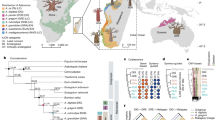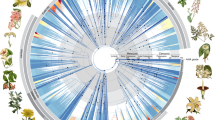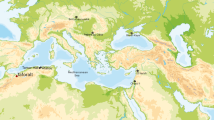Abstract
RECENT speculations on the loss and retention of the ability to synthesise L-ascorbic acid (vitamin C) during evolution of animals have been based on few data, often for limited numbers of species1. Published reports for the Mammalia deal mostly with domesticated and laboratory species, and there is little information on ascorbate biosynthesis in wild populations. The status of knowledge on bats typifies this paucity of data. It has been reported that two species of bats (of approximately 850 species), like anthropoid primates and guinea pigs, are unable to synthesise vitamin C because they lack L-gulonolactone oxidase2. When present, this enzyme catalyses the final step in the biosynthesis of L-ascorbic acid from glucose. These species are Pteropus medius3 (=P. giganteus), a fructivore of the suborder Megachiroptera, and Vesperugo abramus2,4 (presumably Pipistrellus coromandrd), an insectivore of the only other chiropteran suborder, the Microchiroptera. We have assayed livers of 34 species of New World microchiropteran bats for L-gulonolactone oxidase (Table 1). These species represent six families, temperate and tropical environments, and a wide variety of food habits and life histories. Within the limits of our assay, we could not detect L-gulonolactone oxidase in livers of any of the species examined. This greatly strengthens the hypothesis that all members of the Chiroptera lack the ability to synthesise vitamin C, which is surprising considering the diversity of bats and their many highly specialised diets.
This is a preview of subscription content, access via your institution
Access options
Subscribe to this journal
Receive 51 print issues and online access
$199.00 per year
only $3.90 per issue
Buy this article
- Purchase on Springer Link
- Instant access to full article PDF
Prices may be subject to local taxes which are calculated during checkout
Similar content being viewed by others
References
Chatterjee, I. B., Majumder, A. K., Nandi, B. K., and Subramanian, N., Ann. N. Y. Acad. Sci., 258, 24–47 (1974).
Chatterjee, I. B., Science, 182, 1271–1272 (1973).
Roy, R. N., and Guha, B. C., Nature, 182, 319–320 (1958).
Gupta, S. D., Choudhury, P. K., and Chatterjee, I. B., Int. J. Biochem., 4, 309–314 (1973).
Chatterjee, I. B., Meth. Enzymol., 18 A, 28–34 (1970).
Ayaz, K. M., Jenness, R., and Birney, E. C., Analyt. Biochem. (in the press).
Grollman, A. O., and Lehninger, A. L., Archs Biochem. Biophys., 69, 458–467 (1957).
Giroud, A., Leblond, C. P., Ratsimamanga, R., and Gero, E., Bull. Soc. Chim. Biol., 20, 1079–1087 (1938).
Krutsch, P. H., and Hills, M., Endocrinology, 69, 664–666 (1961).
Jukes, T. H., and King, J. L., J. hum. Evol., 4, 85–88 (1975).
Pauling, L., Proc. natn. Acad. Sci. U.S.A., 67, 1643–1648 (1970).
Jepsen, G. L., Science, 154, 1333–1339 (1966).
Composition of Foods, Agriculture Handbook No. 8 (US Department of Agriculture, Washington, DC, 1963).
Author information
Authors and Affiliations
Rights and permissions
About this article
Cite this article
BIRNEY, E., JENNESS, R. & AYAZ, K. Inability of bats to synthesise L-ascorbic acid. Nature 260, 626–628 (1976). https://doi.org/10.1038/260626a0
Received:
Accepted:
Issue Date:
DOI: https://doi.org/10.1038/260626a0
This article is cited by
-
Conserved or Lost: Molecular Evolution of the Key Gene GULO in Vertebrate Vitamin C Biosynthesis
Biochemical Genetics (2013)
-
Inactivation dates of the human and guinea pig vitamin C genes
Genetica (2011)
-
Primitive actimoterigian fishes can synthesize ascorbic acid
Experientia (1994)
-
Ascorbic acid content of neotropical plant parts available to wild monkeys and bats
Experientia (1987)
-
L-gulonolactone oxidase is present in the invertebrate,Limulus polyphemus
Experientia (1985)
Comments
By submitting a comment you agree to abide by our Terms and Community Guidelines. If you find something abusive or that does not comply with our terms or guidelines please flag it as inappropriate.



